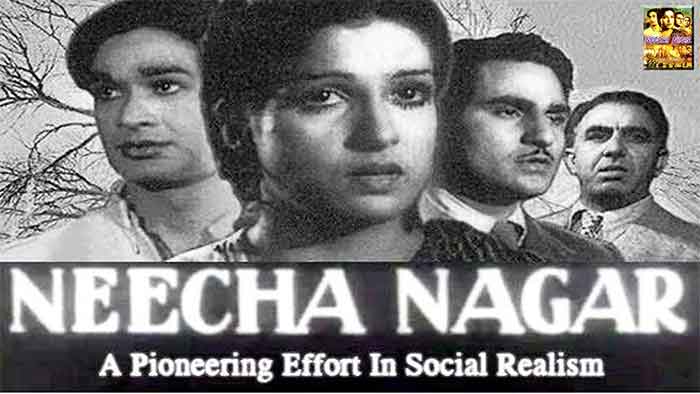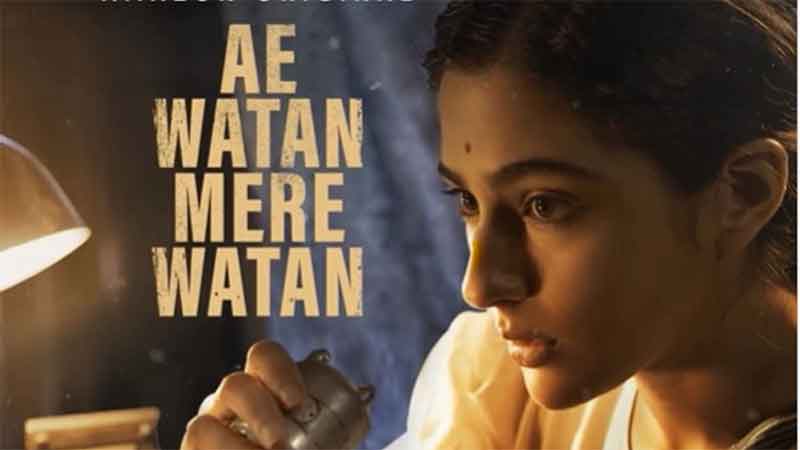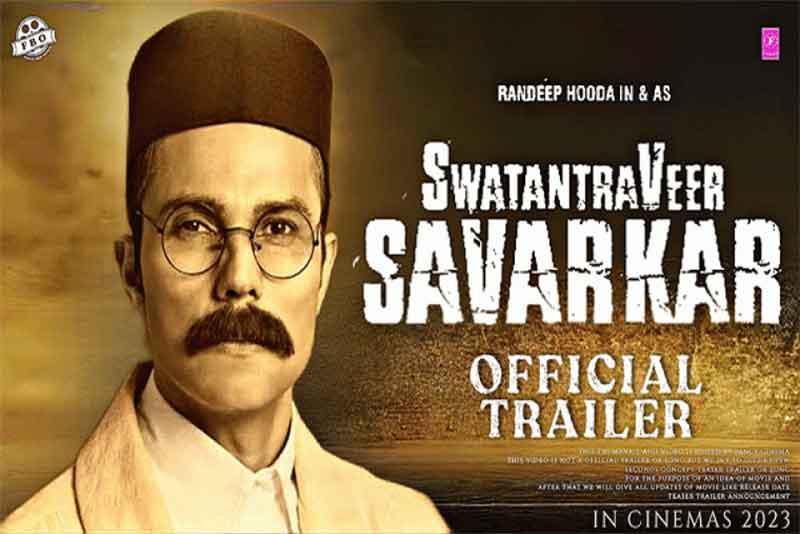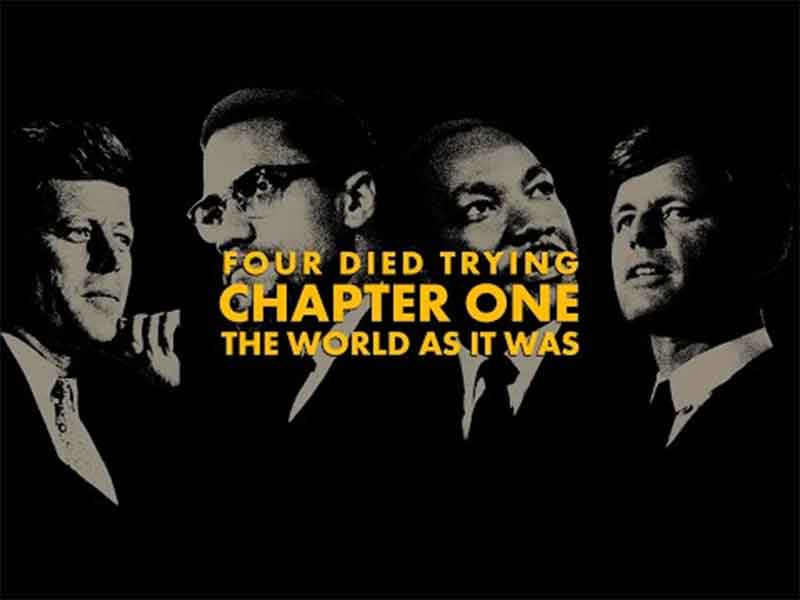A film on struggles of slum-dwellers, won the first top international award for India

Much before the advent of the new wave in Indian cinema, during the decade of the 1950s several films of great social commitment which reflected the ideals of the freedom movement. However what is even more remarkable is that even before independence, braving the even higher arbitrariness of colonial censors, some film makers had the courage to make films on socio-economic inequalities and injustices. The achievement is all the more remarkable as some of them, like K.A.Abbas and Chetan Anand, had not yet even settled in the Bombay film industry, had very meager resources and yet took the risk of being censored out at such an initial stage of their career. Also despite all the problems, they were able to attract quite remarkable talent in various departmets of film-making.
Among the most remarkable films made in this phase was Neecha Nagar (1946) which shared the Grand Prix du Festival International du Film at the Cannes Film Festival. This was the first Indian film to receive a Palme d’Or( Best Film).
Neecha Nagar is known for its fierce critique of inequalities and injustices of urban governance in India, where under the influence of big builders slum-dwellers are harmed or denied essential services. This film also explores linkages of disease to these inequalities, particularly in the context of sanitation and water. Such themes were rare in the world of feature films at that time, still are.
This film also has an important role in the careers of several leading film personalities of India. This was the debut film for Kamini Kaushal and as is well-known she went on to emerge as a very popular and well-regarded film heroine in the years to come. Ravi Shankar emerged as music-director for a film for the first time in this film and went on to compose truly great music in some other films, including the famous Apu Trilogy of Satyajit Ray, Bangla version of Kabuliwala , Gandhi and the all time great Hindi film of Hrishikesh Mukherjee—Anuradha.
This film was directed by Chetan Anand and produced by Rashid Anwar, with Uma Anand and Rafiq Anwar in important roles. Priya Rajvansh also had a role in this film, and she later emerged as the leading lady of most films of Chetan Anand. It was based on a story by K.A.Abbas and Hayatullah Ansari. Contribution of K.A.Abbas is memorable in particular, as he was associated with many great film efforts of those days, including his own Dharti Ke Lal, a famine on the Bengal famine.
75 years after it was made this film still remains very relevant for its powerful message of how anti-poor policies and decisions can devastate the water, sanitation and health conditions of the poor. The story-line centers around the decision of a very resourceful builder to take up the construction of very profitable buildings for the richer sections . To get land at dirt cheap rates for this project he eyes the land which will be released if a big and highly polluted drain in the city is diverted towards the main slum colony of the city.
He is very powerful in the local municipality and is used to having his way. However in the context of this particular project he faces strong opposition from the slum-dwellers, led by a determined idealist young man , his sister and an elderly traditional healer.
When the builder succeeds in diverting the drain, several diseases spread fast in the slum. When people gather to oppose this, the builder arranges to stop the drinking water supply so that those who are ill cannot even get water.
Ultimately the resistance, despite several setbacks and tragic moments, leads towards a big revolt of the poor.
The appeal of the film increases with good acting , music and direction. This film is considered a landmark in the career of Chetan Anand who went on to make and direct many films of lasting appeal, including Haqeeqat and Aakhri Khat.
Those concerned deeply with sanitation and water needs of the poor will identify even more closely at an emotional film with this film and its message. They will find this a very useful film to carry forward and disseminate their concerns. After all the injustice that this film exposes is still a reality today in many cities and peri-urban areas.
Bharat Dogra has been closely involved several social movements.

















































